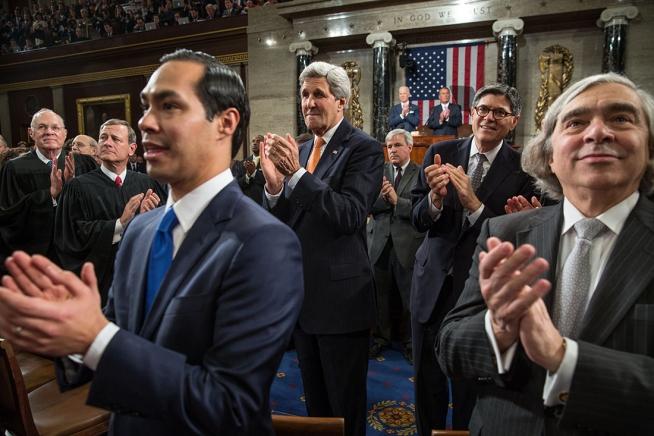The Middle Class Illusion
Democrats on Tuesday applauded for Obama’s proposals to support the middle class
February 16, 2015
During President Obama’s state of the union speech, I could not help but notice the constant reference to the American middle class, rather than the working class, or the lower class. It seems like whenever politicians address the country, they only pander to the middle class.
According to the President, middle class economics means “helping working families feel more secure in a world of constant change.” I’m not sure what this means, exactly, but both Democrats and Republicans use the same rhetoric of middle class pandering.
The U.S. Department of Commerce defines the middle class as being defined by aspirations rather than their income. According the Economics and Statistics Administration, “middle class families aspire to home ownership, a car, college education for their children, health and retirement security and occasional family vacations.”
If the middle class isn’t defined by income, but rather the aspirations of income, it is so ambiguous that anyone could identify as middle class.
The Drum Major Institute, a political think tank, says the income range for being considered middle class is between $25,000 and $100,000 annually. It is utterly ridiculous to think that a six-figure income compares to a quarter of that income in the sense that they are in the same class.
The way that politicians use middle class terminology to address their constituents is a rhetorical tool that affirms class society. If we all think that we can identify with this one class, it must mean that we are removed from the bottom level of this class structure.
Now that the richest one percent of Americans has the biggest share of American income since the 1920s (before the concept of middle class existed), using the rhetoric of “middle class” is a way of effectively convincing us lower class people that we are getting our slice of the pie.
What may seem like an insignificant term is actually a very effective way to control the interests and perceptions of Americans who do not gain from these financial policies. The U.S. government used taxes on the richest few to build the infrastructure of our modern society. The highways, bridges and public universities were benefits of taxing the wealthy.
Our American class society has spent 60 years convincing working class people that we are the ones who have to pay more to sustain this infrastructure while the richest few see their wealth rapidly grow at a rate that hasn’t been seen since before the Great Depression.
Maybe we should stop the false terminology before we end up waiting in breadlines again.









